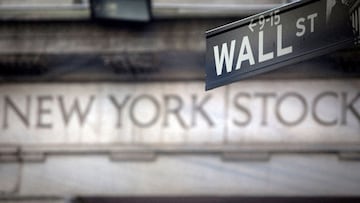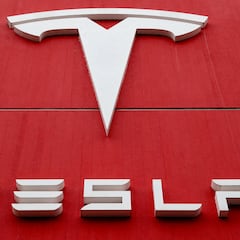‘Big Short’ investor who predicted the 2008 collapse just bet $1.6 billion on a Wall Street crash
Michael Burry, the investor who accurately predicted the 2008 housing market collapse, has now placed $1.6 billion in a bet on a Wall Street crash.


Michael Burry, the investor who shot to fame because of his accurate prediction of the collapse of the housing market 15 years ago, is now betting $1.6 billion that Wall Street will crash.
According to a securities filing released earlier this week, Burry’s fund, Scion Asset Management, bought put options against a fund that tracks the S&P 500 and Nasdaq 100 Index worth a combined $1.6 billion at the end of the second quarter.
The filings indicate that the investor has used more than 90% of his portfolio to wager on a stock market plunge.
READ ALSO: Tesla lowers prices of Model X and S electric cars by $10,000
NEW: Michael Burry bought 💵 $1.6bn worth of puts, of wich $740mn against NASDAQ 100 ($QQQ) and $900mn against S&P 500 ($SPY) 👀
— Bitcoin News (@BitcoinNewsCom) August 16, 2023
Are investors betting on a stock market crash? pic.twitter.com/DY7cKwZkWK
READ ALSO: One dollar bills that sell for $150,000! How do I know if I have one?
The S&P 500 and Nasdaq 100 have both been doing well so far this year. The S&P 500 is up 16%, while the Nasdaq has gained 38%.
Burry bets on travel and healthcare
Burry and his company are also betting on the healthcare, media, and travel industries, buying shares of the Expedia Group, MGM Resorts, CVS, Cigna, and CNN parent company Warner Bros. Discovery.
Burry gained widespread recognition for his correct predictions and successful bets against the US housing market bubble that led to the global financial crisis in 2008. Burry’s story was featured in the book “The Big Short” by Michael Lewis, which was later adapted into a popular movie of the same name, starring Christian Bale as the investor.
Related stories
The hedge fund manager is known for his investment approach and deep analysis of financial markets. His foresight and successful trades during the crisis brought him significant attention.
Burry founded the investment firm Scion Capital in 2000 and made significant profits by anticipating the collapse of the subprime mortgage market. He made $100 million for himself and $700 million for his investors betting against the housing bubble.

